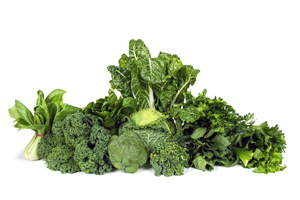 The importance of eating a balanced diet and getting regular exercise have been promoted to the general public for some time now. Consumers seem to be getting the message and are hitting the gym in record numbers. But the health benefits of daily exercise may be hampered by the fact that most consumers’ balanced diets don’t actually include very much real food.
The importance of eating a balanced diet and getting regular exercise have been promoted to the general public for some time now. Consumers seem to be getting the message and are hitting the gym in record numbers. But the health benefits of daily exercise may be hampered by the fact that most consumers’ balanced diets don’t actually include very much real food.
As crazy as that sounds, it’s true. Mechanized farming and genetic modification have actually reduced the overall quality and antioxidant value in many of the fresh fruits and vegetables we consumer. But what’s even worse is that many time-strapped consumers turn to prepackaged, processed foods and drive-thru restaurants for a majority of their meals. This is not real food.
What’s the difference?
Conventionally grown fruits, vegetables and grains are typically genetically modified and use dangerous toxins such as chemical fertilizers and pesticides, and traditionally produced meats and seafood often contain added growth hormones and antibiotics. Consuming such toxins is something everyone should avoid, not just athletes and gym goers.
In addition, processed foods tend to be high in sugar, salt and unhealthy fats, which have been linked to increases in obesity, various diseases and chronic ailments.
However, real foods, such as organic fruits, vegetables and grains, grass-fed meats and wild-caught seafood do not contain any of these toxins, and in some instances may have higher nutritional or antioxidant values.
Why we need real food
Food fuels our bodies, and while the quality of foods we choose is important for everyone, it’s especially important for athletes and exercise enthusiasts who need to replace vital nutrients and energy expended during a workout.
In addition, consuming high levels of antioxidants has been shown to decrease the risk of certain diseases.
What you can do
Increasing your daily intake of real foods isn’t all that difficult. A good place to start is by choosing organic fruits and vegetables. While organic produce can be a little more expensive, it’s easy to mitigate the higher costs by buying what’s in season in your area instead of paying extra for out-of-season produce that had to be transported.
Another good idea is to avoid processed foods whenever possible. While this may mean a bit more meal planning and cooking at home, you’ll likely see an increase in your energy level, which will make it well worth it.
Lastly, try to stay away from foods that are high in unhealthy fats, salt and sugar. This is a tough one for most people, as it usually means avoiding fast food altogether, but you’ll see big improvements on the scale if you’ve been working out in an attempt to lose weight.
For more articles go to http://clubonefitness.lifestyleezine.com

 We hear it all the time. Everyone should eat more fruits and vegetables. In fact, the Center for Disease Control suggests that eating a sufficient amount of fruits and vegetables could lower the risk of certain diseases. So why is it that we often reach for a sugary snack or other high-calorie foods when we’re in a hurry and hunger strikes?
We hear it all the time. Everyone should eat more fruits and vegetables. In fact, the Center for Disease Control suggests that eating a sufficient amount of fruits and vegetables could lower the risk of certain diseases. So why is it that we often reach for a sugary snack or other high-calorie foods when we’re in a hurry and hunger strikes? It happens to the best of us. No matter how healthy you eat or how much you exercise, every now and then you get hit with an insatiable craving for something you know you’ll regret eating. Whether it’s a cheesy pizza with all the toppings or triple fudge sundae, there are a few things that can help you fend off the temptation.
It happens to the best of us. No matter how healthy you eat or how much you exercise, every now and then you get hit with an insatiable craving for something you know you’ll regret eating. Whether it’s a cheesy pizza with all the toppings or triple fudge sundae, there are a few things that can help you fend off the temptation.  When you think about the most precious thing you have, your first answer is most likely to say that it’s your health and this would be a good answer to give, but out of all the senses and out of all the things that our body can do, most people will probably say that their eyesight is the most valuable ability they have.
When you think about the most precious thing you have, your first answer is most likely to say that it’s your health and this would be a good answer to give, but out of all the senses and out of all the things that our body can do, most people will probably say that their eyesight is the most valuable ability they have.  It’s funny how we live in a society that condemns the use of certain illegal drugs, but people seem to glorify the consumption of junk food and soft drinks. Fast food chains are popular and they make billions each year. This is something that is causing obesity and a large number of serious illnesses that lead to death.
It’s funny how we live in a society that condemns the use of certain illegal drugs, but people seem to glorify the consumption of junk food and soft drinks. Fast food chains are popular and they make billions each year. This is something that is causing obesity and a large number of serious illnesses that lead to death. Eating well is key to a healthy lifestyle. Adding greens to your diet can help you pack some powerhouse nutrients into your meals. Leafy greens like kale, collard greens, chard, bok choy, arugula, and spinach just to name a few, are great greens to introduce to your daily diet. Green vegetables are loaded with protein and contain a ton of micronutrients, including folate, carotenoids, such as lutein and zeazanthin (promoting healthy vision), calcium, and omega-3 fatty acids. These leafy greens have the potential of warding off many types of cancers and are very good for your heart health.
Eating well is key to a healthy lifestyle. Adding greens to your diet can help you pack some powerhouse nutrients into your meals. Leafy greens like kale, collard greens, chard, bok choy, arugula, and spinach just to name a few, are great greens to introduce to your daily diet. Green vegetables are loaded with protein and contain a ton of micronutrients, including folate, carotenoids, such as lutein and zeazanthin (promoting healthy vision), calcium, and omega-3 fatty acids. These leafy greens have the potential of warding off many types of cancers and are very good for your heart health.